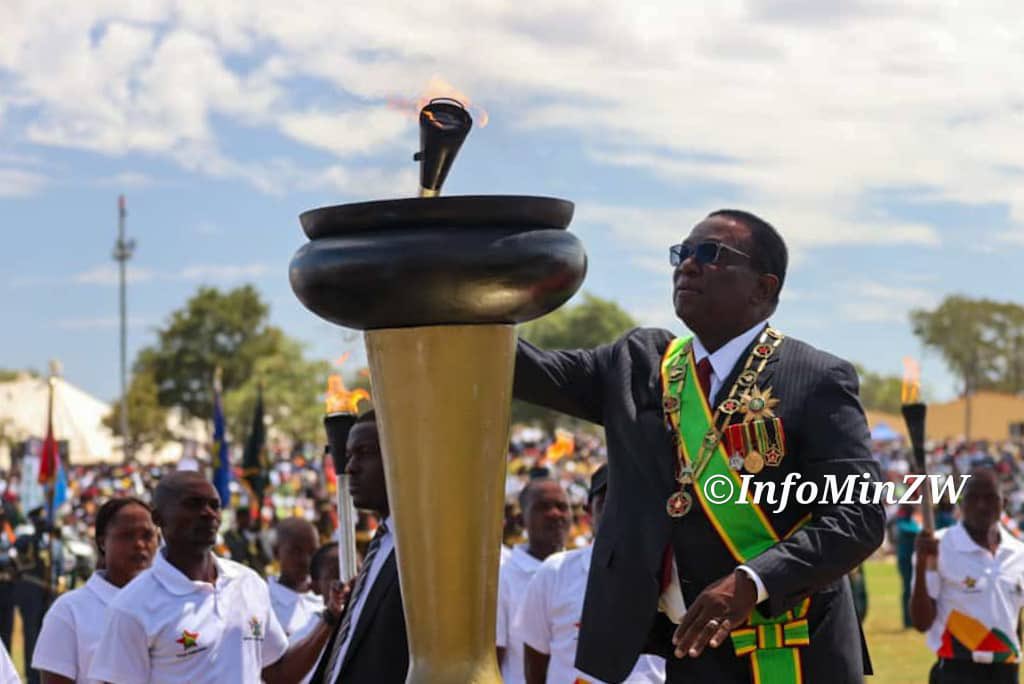TAKUDZWA HILLARY CHIWANZA & TAKUDZWA KADZURA
THE celebration of our Independence Day in Zimbabwe is a great day in our national calendar, symbolizing the valiant struggles of those who sacrificed their blood by taking arms so that the country is free from the yoke of brutal colonial rule.
The victory of the people of Zimbabwe in getting independence from the British colonial overlords was a protracted battle in which the intransigence of Rhodesia finally crumbled.
As usual, around Independence Day, opposition political parties peddle narratives, for political expediency, that postulate how Zimbabwe has become a failed state and an international pariah. That nothing functions in Zimbabwe. That the country is an absolute wasteland. They say there is nothing worth to note on Independence Day and the country is purportedly in a worse off position than during the colonial period.
History students will relate to the question of Zimbabwe’s independence being celebrated on the 18th and not the 28th of April. The latter is when the famous seven fought the Chinhoyi Battle in the year 1966. It would have been poetic to celebrate Uhuru on such a historic day.
Nonetheless, our sovereignty to determine freedom, equality and justice is a matter that cannot be confined to calendar days. The independence of Zimbabwe marked the end of racist governance by the Ian Smith regime. The rest is well documented. And in that regard, what does independence mean to an African youth today? And for the collective national consciousness?
We are sadly plagued by deteriorating standards in the sociopolitical arena where ills like corruption are the order of the day. The youth of today without realizing will be judged harshly if there are no concerted efforts to treat an infection that has killed those before them – our fathers and mothers.
This is to merely poke conversation among youthful folk that are we ready to have an agency which equips us to be comrades strong enough to turn around a gloomy oncoming future. What sacrifices are we ready to take head on?
From a youth perspective the notion of political participation is an urgent matter. Acknowledged is the fact that society is over and above the individual but the individual has got agency.
44 years to the youth feels like the country is an ancient establishment. The youth today is born free. Supposedly, life began 4 years ago for the nation Zimbabwe (life begins at 40). In the face of abject poverty, we find the motherland in a state where people are constantly dreaming about life in the diaspora.
Imagine a situation where one has acquired minimum required education and still has to add another pile of certificates to improve the odds of employment.
We come back to the question of personal agency. What is there to have in independent Zimbabwe? Is Bob Marley’s promise still bankable for our daily aspirations of a civilization rooted in liberty? The pressing nature of these questions leads us to certain ideological considerations.
Because the crucial point – detached from the partisan narrative spread by political parties – is that our sovereignty should be grounded on the basis of collective wellness. The wellness of the individual means the wellness of the collective; and the wellness of the collective means the wellness of the individual. As it stands, our collective national psyche is detached from these ideals.
The reason for the liberation struggle was not premised on serving global financialized private capital. Nor was it for a one-man-one-vote democracy that creates a parasitic looting class subservient to billionaires.
The protracted liberation war was a matter of breaking the yoke of colonial domination to create a free Zimbabwe in which we are regarded as human beings deserving of a kind existence. It was to reclaim our land to feed everyone. Not for an elite few to make profits while hunger persists unabated for the poor majority. But this is where we are now. A society that prioritises individualistic consumption without regard for the welfare of the public. The bar continually goes low.
Notwithstanding this, Independence Day belongs to us, the people of Zimbabwe. It is as deep as it gets. We remain proud of country, acknowledge our shortfalls, and express hope for a better future. Self-determination is definitely not an easy responsibility, but here we are, we have it, and ought to exercise it for the benefit of all. Independence Day is important in helping us strive towards critical consciousness—realizing that the struggle still continues. 1980 was only the beginning, and the journey is ongoing.
After all is said and done, Independence Day always reminds us that we should not take our sovereignty for granted. Perhaps, this is what it means for today's youth and for our collective national consciousness.



















0 Comments